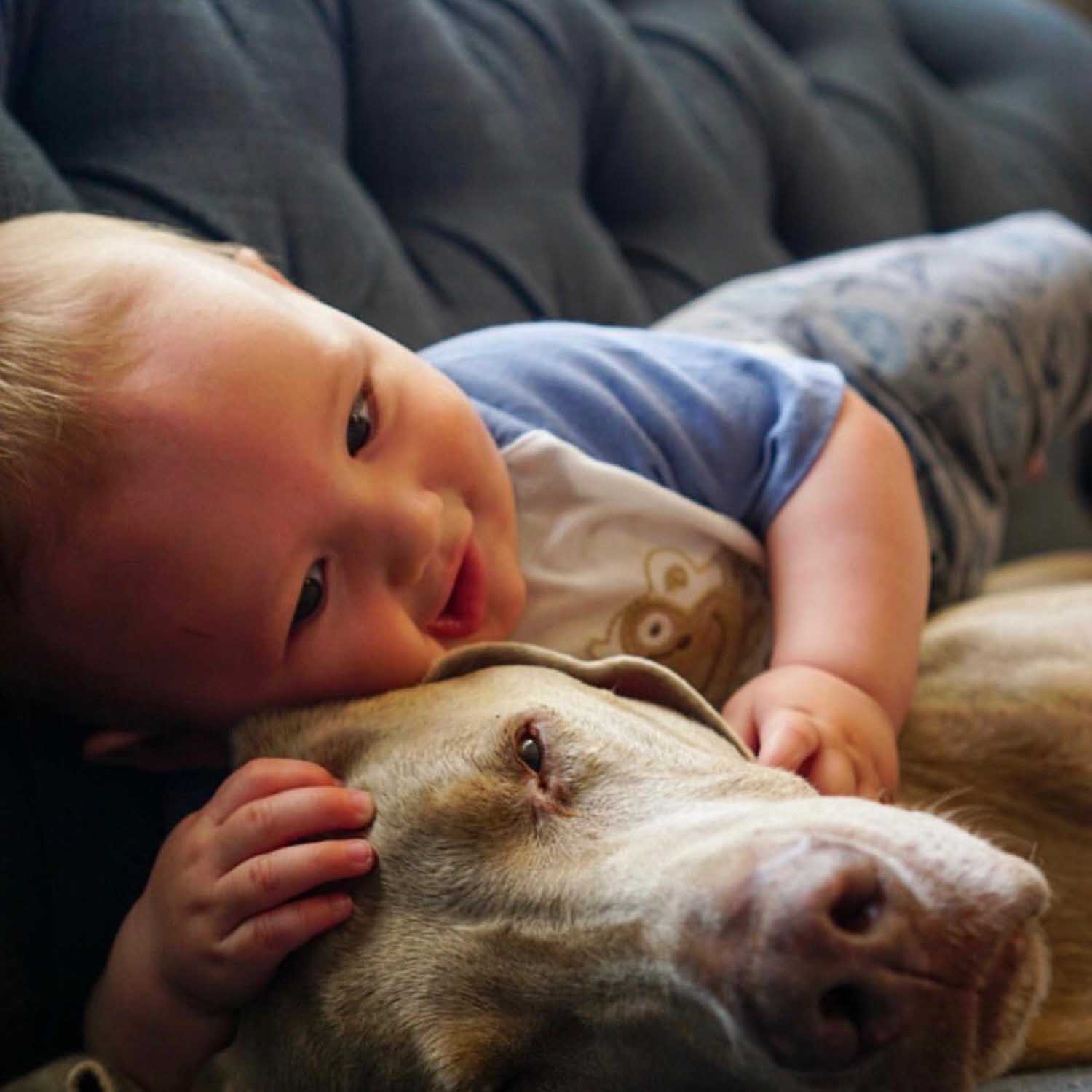Five Questions for Dr. Moore: Dogs and Babies
How to Introduce a New Baby to Your Dog
Urban Dog is an Uncle! Our favorite couple, Oliver Drewes and our own resident veterinary expert Christina Moore vistied us with their 11-month-old baby. His name is Magnus and he’s a delight!
This gives us the perfect excuse to have a talk about two of our favorite subjects: dogs and babies!

Urban Dog: We did a lot of research prepping for this interview and there’s tons of stuff new parents and dog owners can do to get ready for the arrival of a new baby. Help me cut through the clutter, what’s really important?
Dr. Moore: Control is the most important thing. That’s going to depend a lot on your dog. And also with your comfort level with controlling your dog and keeping your dog in a controlled environment. The most important thing that Oliver and I did was to create some boundaries for the dogs. The dogs used to be able to jump on furniture and be in our laps all the time. Luckily for us we moved into a new house and got new furniture at the same time that I got pregnant, so we used that moment to teach our dogs not to get up on the furniture. They’re perfectly comfortable being on their beds. Granted we had an opportune moment to do this, but this kind of training can be done without it. What also helps is a crate. Dogs being crate-trained helps in most aspects of their lives. It’s going to be especially helpful when the baby arrives. The crate is the dog’s safe space. When the baby is crying or I am running around like a chicken with its head cut off trying to get ready for work and tend to the baby, and the dogs get nervous, I can put them in their crates and they are comfortable and reassured. It’s all about creating boundaries and spaces for the dog. That will keep the dogs from encroaching on the baby’s space.

Urban Dog: How does one assess one’s dog?
Dr. Moore: I believe you can tell a lot about your dog just by observing. We all get to know our dogs really well, but one of the things I think you should look for is their general “neediness.” I think the best thing to do is to NOT give them more attention when baby comes in order to make them “feel” better or less neglected. They get used to that and when you have to to tend to the baby and cannot pay attention to the dog, things just get much worse. Treat them “normally,” don’t try to “make up” for the fact that now your time is going to be divided.
Urban Dog: How do you associate your baby with being a “good thing” for the dog?
Dr. Moore: We acclimated our dogs to all the new things that we bought for the baby. They were allowed in the nursery. We let them hang out with us when we put together the baby furniture. We let them smell new baby toys and furniture. We were trying to make sure they were comfortable with all the things that are changing in the house. It’s important when a new baby finally comes home, you have to make sure that all the interactions with the baby are positive ones. For example, when baby comes home for the first time, other people should enter the house first, so the dogs get all their happy “You’re home!” energy out of the way. Then the dogs should be put on a leash so they are controlled. Then the baby can enter the house.

Urban Dog: How do you manage the first physical interaction between dogs and babies?
Dr. Moore: When it’s time for the dogs to actually physically interact with the baby you need to control that situation as well. If the dog starts to behave negatively, divert their attention and then try again later. When your dog meets your baby you should get started slowly, you can try things like letting the dog just smell the baby’s feet first. Or you can have the dog sniff the baby when they’re asleep, so there aren’t a lot of noises that can alarm the dog when first encountering the baby.
Urban Dog: What do you do if your best laid plans don’t work and the dog gets upset?
Dr. Moore: Bring in an expert. Talk with an animal behaviorist or a good, qualified trainer. A veterinarian who is also behaviorist can help you better identify what might be upsetting your dog.
Here is an amazing guide from the ASPCA you can look at to help flesh out the advice from Doctor Moore. It’s a bit of an understatement to say it’s comprehensive! And it’s written from the veterinarian’s perspective, not a parenting magazine or book perspective, which is very helpful.
For more from Doctor Moore, click here (ticks and fleas); here (cold weather); and here (veterinary care costs.)






